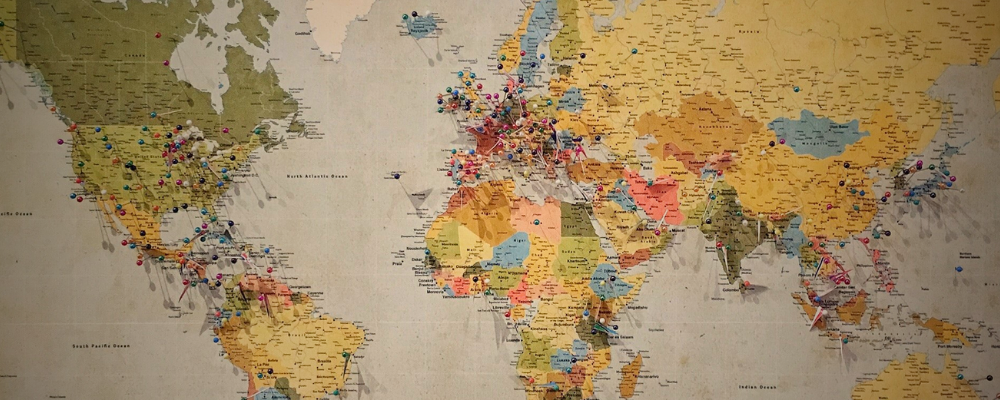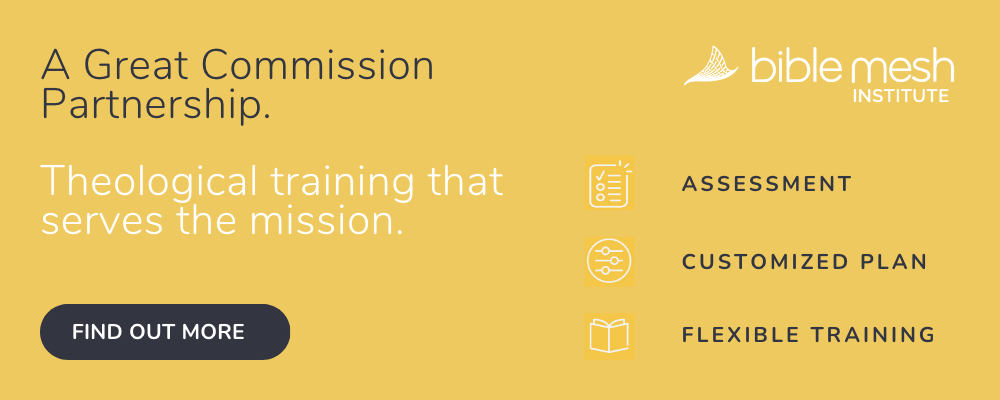In this series of blog posts, Dean of the BibleMesh Institute Dennis Greeson explores questions related to theological education and training for cross-cultural ministry. The questions and answers have been adapted from a Global Missions Podcast episode.
In this series, Dr. Greeson considers how to define the nature and task of theological education, especially for missionaries, considers common barriers to theological education, and looks at trends in how models for theological education are becoming more innovative and effective in preparing missionaries to join God’s work around the world.
Q. What is theological education?
First and foremost, Christians are called to know God as he’s revealed himself to them. The task of theological education is to train believers to do that with a certain type of discipline. This means learning to think well about how God is known through his word. To do this requires learning what the Bible is, what it says, and how to interpret it. To understand what God says to Christians today as they join him on his mission. All these elements encompass what theological education ought to be.
To put it in simple terms, theology is thinking in a disciplined way about how to know God rightly as he’s revealed himself. Theological education is training people to do that kind of careful thinking.
To put it in simple terms, theology is thinking in a disciplined way about how to know God rightly as he’s revealed himself.
Q. What are some of the barriers to theological education in our contemporary world?
Speaking out of a background of life on the mission field, the first that comes to mind is the general tendency to associate theological education with ivory tower academic learning that fosters pride. They don’t believe theological education is practical. Sure, it teaches theory—but one can get so lost in theory as to lose sight of the mission. Many believe there should be a strong emphasis on becoming a practitioner.
That’s an important caution. If our theological education doesn’t result in practical application, then we’ve lost sight of its purpose.
Other barriers include time and money. A four-year Master’s of Divinity program is expensive. It is cost preventative to uproot your family, leave a job and go study full-time as a student-in-residence somewhere, not to speak of the associated tuition dollars. Because it takes so long for people, many see it as a barrier to getting to the field. They feel ready, they feel a call on their life, and they’re passionate about the lost. Seminary or Bible college seems like something that’s standing in the way.
Q. What are some of the bright opportunities that you see emerging for theological education?
Some of the most exciting opportunities have to do with changes in technology. I’m not the first to say that technology should drive how we do things. At the very least, it provides the ability to have asynchronous learning pathways that take place without sitting in a classroom with other students, thus creating opportunities to rethink the traditional training model.
However, I am cautious. Technology does shape people in certain negative ways, whether one recognizes it or not. God created humans to be flesh and blood, embodied creatures. We exist with a body learning to follow the mode in which we exist. We live embodied lives. People are best discipled sitting across the table having a cup of coffee together. Technology can’t recreate that, and one must not lose sight of that.
But technology does afford some opportunities that have been unavailable in the past. By taking advantage of them, we can begin to rethink what theological education looks like from the ground up. This is not limited to merely putting whole degree programs like a Master’s of Divinity or a Master’s of Arts online. It entails reconceiving what it means to be theologically trained, in what format said training takes place, and the length of time required.
This ends part 1 of our four part series on How Should Missionaries and Mission Agencies Think About Theological Education?
Dr. Dennis Greeson is Dean of the BibleMesh Institute and Research Fellow in Public Theology for The Land Center for Cultural Engagement. He is also a PhD Research supervisor at Union Theological College, Belfast, and teaches and writes on theology, culture, and public square issues.

